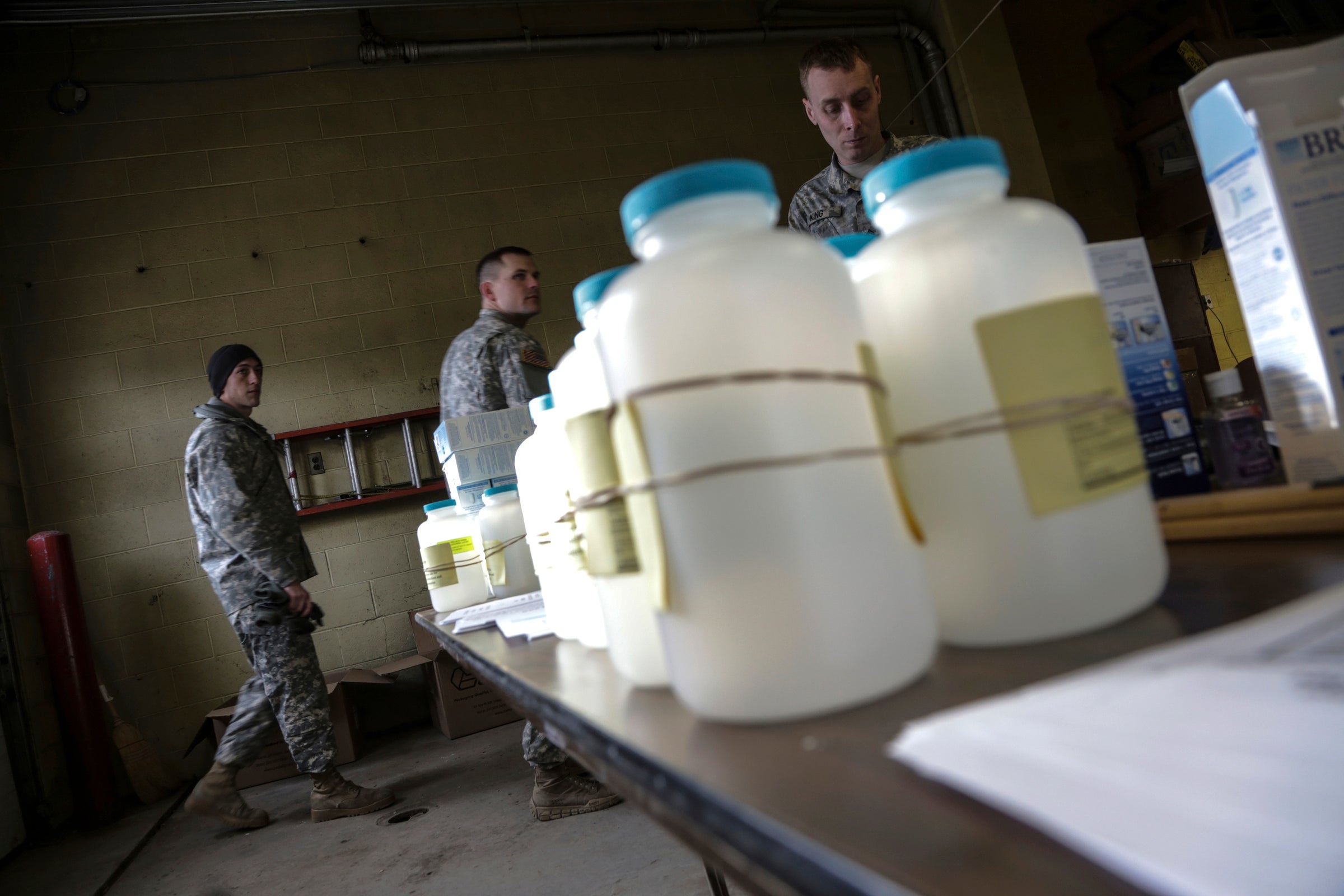Michigan will borrow $600M for Flint water settlement
Michigan lawmakers plan to begin swiftly passing a plan to borrow $600 million to fund the state’s proposed settlement with the residents of Flint, who sued after their municipal water supply was contaminated with elevated levels of lead

Michigan lawmakers on Wednesday planned to begin swiftly passing a plan to borrow $600 million to fund the state's proposed settlement with the residents of Flint who sued after their municipal water supply was contaminated with elevated levels of lead for 18 months.
Under the bipartisan legislation, the loan from a state economic development fund would cost more than $1 billion to repay over 30 years — $35 million annually. It is believed to be the state government's largest-ever legal settlement, pending approval from a federal judge.
Other defendants contributing to the $641 million deal include the city of Flint and McLaren Flint Hospital, which each will pay $20 million, and Rowe Professional Services Co., an environmental consulting company that will pay $1.25 million.
“We all determined together that that was the quickest way to get the money to be available for the families and to fulfill the settlement requirements,” said Senate Minority Leader Jim Ananich, a Flint Democrat who is sponsoring one bill. The mechanism, he said, will avoid a large drawdown from Michigan's savings account, known as the “rainy day” fund.
Flint switched its drinking water source in 2014 from Detroit’s system to the Flint River in a money-saving move while under supervision of a state financial manager. City workers followed state environmental officials’ advice not to use anti-corrosive additives. Without those treatments, water from the river scraped lead from aging pipes and fixtures, contaminating tap water.
Elevated levels of lead, a neurotoxin, were detected in children, and 12 people died in a Legionnaires’ disease outbreak that experts suspect was linked to the improperly treated water.
Officials said this week that Flint has taken important steps toward resolving the crisis, such as replacing more than 9,700 lead service lines.
___
Follow David Eggert at https://twitter.com/DavidEggert00
Bookmark popover
Removed from bookmarks